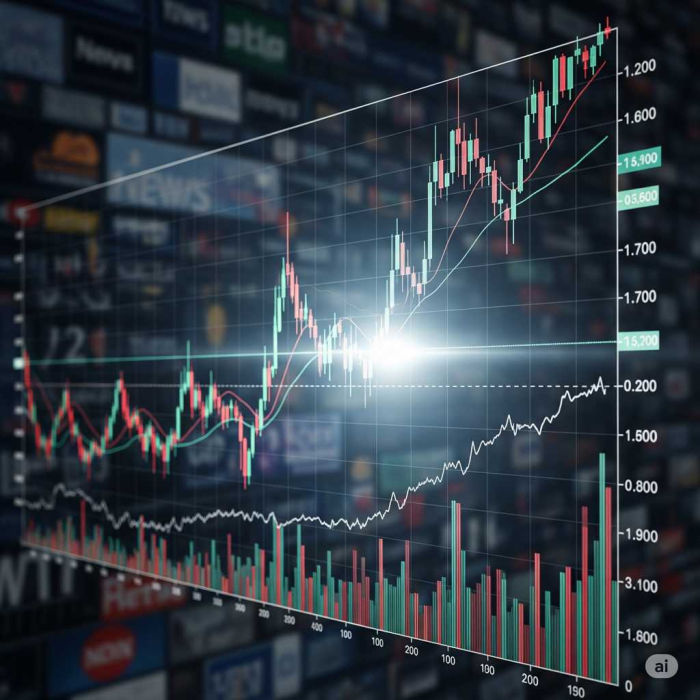Riding the Waves | Trading Economic Releases and Political Events
The financial markets are a dynamic, ever-shifting landscape, often reacting with lightning speed to both anticipated economic data and unforeseen political tremors. For savvy traders, these moments of heightened volatility aren't just chaotic; they represent significant opportunities to profit. But how does one navigate these choppy waters, and what are the keys to successfully trading specific economic releases or political events?

The Pulse of the Economy: Trading Economic Releases
Economic data releases are like regular heartbeats of the global economy. Governments and central banks regularly publish reports that provide insights into a country's economic health. These include:
- Interest Rate Decisions: Announced by central banks (like the Fed, ECB, BoE, BoJ), these are arguably the most impactful. Changes in interest rates directly affect borrowing costs, investment, and currency strength. A hike generally strengthens a currency, while a cut tends to weaken it.
- Inflation Reports (CPI, PPI): The Consumer Price Index (CPI) and Producer Price Index (PPI) measure changes in the prices of goods and services. High inflation can prompt central banks to raise rates, impacting currencies and bond markets.
- Employment Data (Non-Farm Payrolls, Unemployment Rate): These reports offer a snapshot of the labor market's strength. Strong employment figures typically indicate a healthy economy, which can boost stock markets and strengthen the associated currency.
- Gross Domestic Product (GDP): GDP measures a country's total economic output. Strong GDP growth is a positive sign for the economy and its currency.
- Retail Sales and Trade Balance: These provide insights into consumer spending and a country's trade performance, respectively, influencing economic sentiment and currency values.
How to Approach Economic Releases:
- Know Your Calendar: Utilize an economic calendar to track upcoming releases, their historical impact, and market consensus forecasts.
- Understand the Nuances: Don't just look at the headline number. Understand what the data means for the economy and how central banks might react. For example, a "good" jobs report might be interpreted differently if inflation is also soaring.
- Prepare for Volatility: News releases often cause immediate, sharp price movements. Spreads can widen, and slippage can occur.
- Pre-Release vs. Post-Release: Some traders attempt to predict the outcome and take positions before the release (high risk!). Others wait for the initial reaction to subside and trade the subsequent trend or correction.
- Focus on "Surprises": Markets tend to react most strongly when the actual data significantly deviates from expectations.
The Unpredictable Hand: Trading Political Events
While economic releases are scheduled, political events can be more unpredictable and, at times, more impactful. They introduce uncertainty and can trigger significant market shifts across asset classes.
- Elections: National elections can bring about shifts in economic policy, taxation, and regulations, leading to market uncertainty and volatility.
- Geopolitical Tensions: Conflicts, trade wars, and international disputes can disrupt supply chains, influence commodity prices (like oil and gold), and affect currency exchange rates.
- Policy Announcements: Major policy shifts, such as new tariffs, significant government spending plans, or regulatory changes, can directly impact specific industries or the broader economy.
- Central Bank Speeches/Statements: Beyond interest rate decisions, speeches from central bank governors or members can provide "forward guidance" on future monetary policy, influencing investor sentiment.
Navigating Political Events:
- Stay Informed: Beyond economic calendars, keep a close eye on global news, political developments, and expert analysis.
- Assess the Impact: Consider how a political event might affect economic fundamentals. For instance, trade tensions could hurt export-dependent industries.
- Risk Aversion: During periods of high political uncertainty, investors often flock to "safe-haven" assets like gold, the Japanese Yen, or the Swiss Franc.
- Longer-Term Implications: Political events can have both short-term, volatile reactions and longer-term structural impacts on markets.
- Diversification and Hedging: These strategies become even more crucial during politically turbulent times to mitigate potential losses.
Essential Strategies for Success
Trading economic releases and political events is not for the faint of heart. It requires discipline, quick thinking, and robust risk management.
- Risk Management is Paramount: Always use stop-loss orders to limit potential losses. Position sizing should be conservative, especially around high-impact events. Avoid excessive leverage.
- Have a Trading Plan: Define your entry and exit points, your risk tolerance, and what triggers your trades before the event occurs. Avoid emotional, knee-jerk reactions.
- Combine Analysis: While news trading is driven by fundamentals, technical analysis can help identify key support and resistance levels, potential breakout points, and market sentiment.
- Practice with a Demo Account: Before risking real capital, practice your news trading strategies in a demo environment to understand market reactions and refine your approach.
- Don't Overtrade: Not every event is worth trading. Focus on high-impact events relevant to your chosen assets and strategy.
- Journal Your Trades: Keep a detailed record of your trades, including your reasoning, the outcome, and lessons learned. This will help you identify what works and what doesn't.
Trading specific economic releases and political events can offer exciting opportunities for significant gains. However, it's a high-risk, high-reward endeavor that demands thorough preparation, a clear strategy, and an unwavering commitment to risk management. By understanding the forces at play and approaching these events with a disciplined mindset, traders can position themselves to ride the waves of market volatility rather than being swept away by them.
Popular Tags